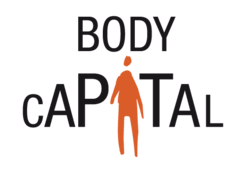The Healthy Self as Body Capital
Individuals, Market-based Societies and Body Politics in Visual Media in the Twentieth Century Europe
Anja Laukötter

Do you know how much rapid eye movement (REM) sleep you need to be efficient, look at food labels to ensure that you are getting all the required vitamins and minerals or know someone who uses a step counter to ensure they are getting enough physical activity?
These are just a few examples of what has happened to health perceptions and practices of individuals during a twentieth century in Europe characterized by an extension of body and health improvement techniques and products supported by a flood of transnationally circulating visuals and the advent of a media society. Bodily health has evolved as a new form of capital (Bourdieu) conceptualized as a form of symbolic capital that can be transformed into economic capital.
The European Research Councel (ERC) funded international research group “The Healthy Self as Body Capital: Individuals, Market-based Societies and Body Politics in Visual Media in the Twentieth Century Europe” led by Christian Bonah (Strasbourg University) and Anja Laukötter (Max-Planck-Institute for Human Development Berlin), will research these understandings and practices in focussing on the history of visual mass media (ranging from film to television and internet) and inédits (amateur, family and private visuals) throughout the 20th Century in Europe and beyond.
With a visual perspective on a long twentieth century, the project seeks to better understand changes and continuities in the history of health intertwined with the history of media. This will provide new insights into how the internalization of body capital has evolved throughout the past century, how transformations in the media world play out at the individual level and how and why health challenges and cultural differences in body perceptions and practices persist in producing social distinction in an age of global information and advanced health systems.
We aim to study these developments through the lenses of visual media in three entangled histories of European countries central to the economy and visual production, yet differing in their visual culture and their embrace of neo-liberal market policies during the twentieth century: France, Germany and Great Britain. Moreover the developments and influences of the United States and Canada as well as Russia/USSR will be included as complementary references and as analytical counterpoints. Within this spatial historical framework the project focuses on four main fields of health interests in the 20th Century:
- history of food/nutrition
- history of movement/exercise/sports
- history of sexuality/reproduction/ infants
- history of dependency/addiction/overconsumption.
